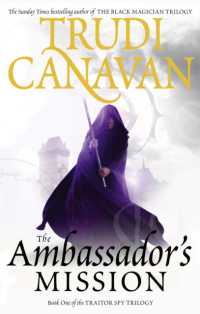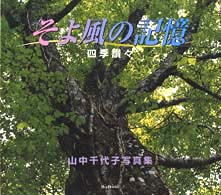- ホーム
- > 洋書
- > 英文書
- > Science / Mathematics
Full Description
Reflecting the very latest theory on diversity issues in science education, including new dialogic approaches, this volume explores the subject from a range of perspectives and draws on studies from around the world. The work discusses fundamental topics such as how we conceptualize diversity as well as examining the ways in which heterogeneous cultural constructs influence the teaching and learning of science in a range of contexts.
Including numerous strategies ready for adoption by interested teachers, the book addresses the varied cultural factors that influence engagement with science education. It seeks answers to the question of why increasing numbers of students fail to connect with science education in schools and looks at the more subtle impact that students' individually constructed identities have on the teaching and learning of science. Recognizing the diversity of its audience, the book covers differing levels and science subjects, and examines material from a range of viewpoints that include pedagogy, curricula, teacher education, learning, gender, religion, and ICT, as well as those of in-service and trainee teachers at all levels.
Contents
Introduction.- Why science education for diversity? Nasser Mansour and Rupert Wegerif.- Part 1. Science education reform for diversity.- Chapter 1: Dialogic Science Education for Diversity, Rupert Wegerif, Keith Postlethwaite, Nigel Skinner, Nasser Mansour, Alun Morgan, Lindsay Hetherington.- Chapter2: Expanding Notions of Scientific Literacy: A Re-conceptualization of Aims of Science Education in the Knowledge Society, Xiufeng Liu.- Chapter3: Activity, Subjectification, and Personality: Science Education from a Diversity-of-Life Perspective, Wolff-Michael Roth, University of Victoria.- Chapter 4: Reflexivity and diversity in research on science education: A European account, Michiel van Eijck.- Part 2, from learning to pedagogy.- Chapter 5: Science education for diversity and informal learning, Loran E. Parker and Gerald H. Krockover.- Chapter 6: Diverse, disengaged and reactive: A teacher's adaptation of ethical dilemma story pedagogy as a strategy to re-engage learners in education for sustainability, Elisabeth Taylor, Peter Charles Taylor and MeiLing Chow.- Chapter 7: Tracing science in the early childhood classroom: the historicity of multi-resourced discourse practices in multilingual interaction, Charles Max, Gudrun Ziegler and Martin Kracheel.- Chapter 8: Conceptual frameworks, metaphysical commitments and worldviews: the challenge of reflecting the relationships between science and religion in science education, Keith S. Taber.- Chapter 9: Science Curriculum Reform on "Scientific Literacy for All" across National Contexts: Case Studies of Curricula from England and Hong Kong, Sibel Erduran and Siu Ling Wong.- Part 3 science teacher Education and diversity.- Chapter 10: Science teachers' cultural beliefs and diversities: A sociocultural perspective to science education, Nasser Mansour.- Chapter 11: Envisioning Science Teacher Preparation for Diversity in 21st Century Classrooms: Some Tensions, Norm Thomson, Deborah J. Tippins.- Chapter12: Expanded agency in multilingual science teacher training classrooms, Silvia Lizette Ramos De Robles & Mariona Espinet.- Part 4 Cultural issues in science Education.- Chapter 13: Re-conceptualizing a lifelong science education system that supports diversity: The role of free-choice learning, Lynn D. Dierking.- Chapter 14: Ignoring half the Sky: A feminist critique of science education's knowledge society, Kathryn Scantlebury, Anita Hussénius, Kristina Andersson and Annica Gullberg.- Chapter 15: Religion in Science Education, Michael J. Reiss.- Chapter 16: Students' perceptions of apparent contradictions between science and religion: Creation is only the beginning, Berry Billingsley.- Chapter 17: Gender and science in the Arab states: Current status and future prospects, Saouma BouJaoude & Ghada Gholam.








